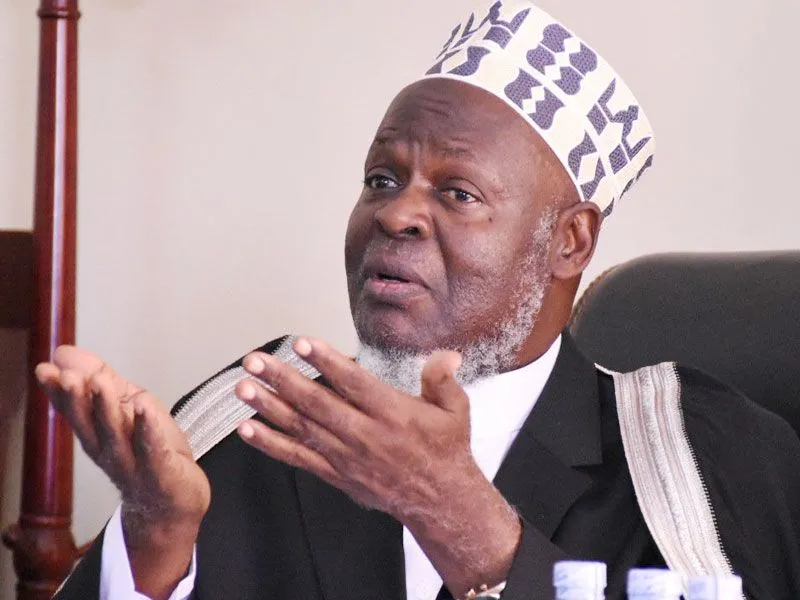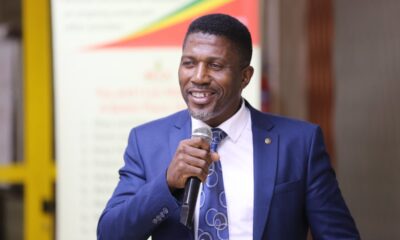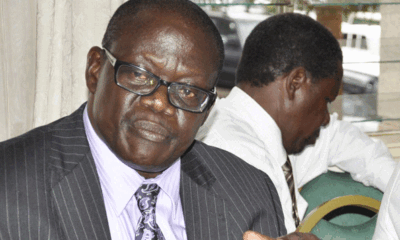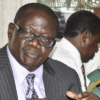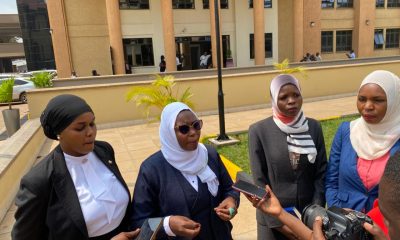Law
High Court Dismisses Challenge to Mufti Mubaje’s Re-election, Citing Lack of Jurisdiction and Religious Autonomy
The High Court in Kampala has thrown out a judicial review application that sought to nullify the re-election of His Eminence Sheikh Shaban Ramadhan Mubaje as the Mufti of Uganda. The ruling, delivered via email by Civil Division Judge Benard Namanya, firmly upholds Sheikh Mubaje’s continued leadership and underscores the judiciary’s reluctance to intervene in internal religious disputes.
The application, filed earlier this year by Swaibu Nsimbe, Byansi Twayibu, Musa Kalokola, and another Muslim faithful, argued that Sheikh Mubaje’s re-election was invalid due to alleged ineligibility and procedural irregularities. The petitioners contended that Sheikh Mubaje, having turned 70 on March 12, 2025, had exceeded the constitutional age limit for the office of Mufti. They sought to declare his candidacy illegal, halt his swearing-in, and compel the Uganda Muslim Supreme Council (UMSC) to organise a fresh election under its unamended Articles of Association.
However, the UMSC had amended its constitution in 2022, raising the age limit for the Mufti to 75. The petitioners argued that this amendment was improperly applied and that the overall election process violated several UMSC constitutional provisions.
Representing the applicants were legal counsel Kizito Farouk Kamulegeya, Kamulegeya Rashid, Nsimbi John Mata, and Mubiru Nasser. They based their application on Sections 37, 40, and 42 of the Judicature Act and the Judicature (Judicial Review) Rules of 2009.
The respondents, including UMSC, Sheikh Mubaje, and 43 others, were represented by lawyers Musa Kabega, Kugonza Isaac, and Balikurungi Faisal, who maintained that the re-election adhered to due process as outlined in the amended UMSC Constitution.
According to court documents, preparations for the leadership transition began in January 2025. On February 20, 2025, Majlis Al-Ulama, the UMSC’s top council responsible for religious leadership, re-elected Sheikh Mubaje for another term. This decision was then endorsed by the UMSC Joint Session on the same day, effectively extending his leadership under the newly amended age provision.
Despite this, the petitioners continued to assert that the process was flawed, alleging a lack of transparency, bypassed vetting procedures, and insufficient consultations, in violation of several articles of the UMSC Constitution.
Court’s Grounds for Dismissal
Justice Namanya dismissed the application on three primary grounds:
- Lack of Jurisdiction over Private Institutions: The judge ruled that the UMSC, while a significant national religious body, operates as a private institution and does not exercise governmental authority. Therefore, it is not subject to judicial review by the High Court. He found no evidence to suggest that the public powers exercised by UMSC were governmental in nature, which would be a prerequisite for judicial oversight under judicial review.
- Religious Question Doctrine: Justice Namanya invoked the “religious question doctrine,” emphasizing that courts are not competent to resolve internal religious disputes, particularly those concerning leadership. He stated that such matters are best handled by the leaders of the Muslim faith and their followers, thus preventing the court from inquiring into the election of Uganda’s spiritual head of Sunni Muslims.
- Failure to Exhaust Internal Mechanisms: The judge noted that the UMSC Constitution provides an internal dispute resolution mechanism through the Muslim Arbitration and Conciliation Council (MAC), established under Article 28. He ruled that the applicants failed to exhaust these internal avenues before seeking redress from the High Court.
Consequently, Justice Namanya concluded that the applicants were improperly before the court and dismissed the application in its entirety. In a gesture aimed at fostering harmony within the Muslim community, he ordered each party to bear its own legal costs.
This ruling reaffirms Sheikh Mubaje’s position as Mufti of Uganda, a role he has held since 2001. With the 2022 amended UMSC Constitution now affirmed by the court, he is eligible to continue serving until the age of 75.
The decision brings to a close a contentious legal challenge that had highlighted divisions within sections of the Muslim community regarding leadership and constitutional governance within the Uganda Muslim Supreme Council.
Comments



